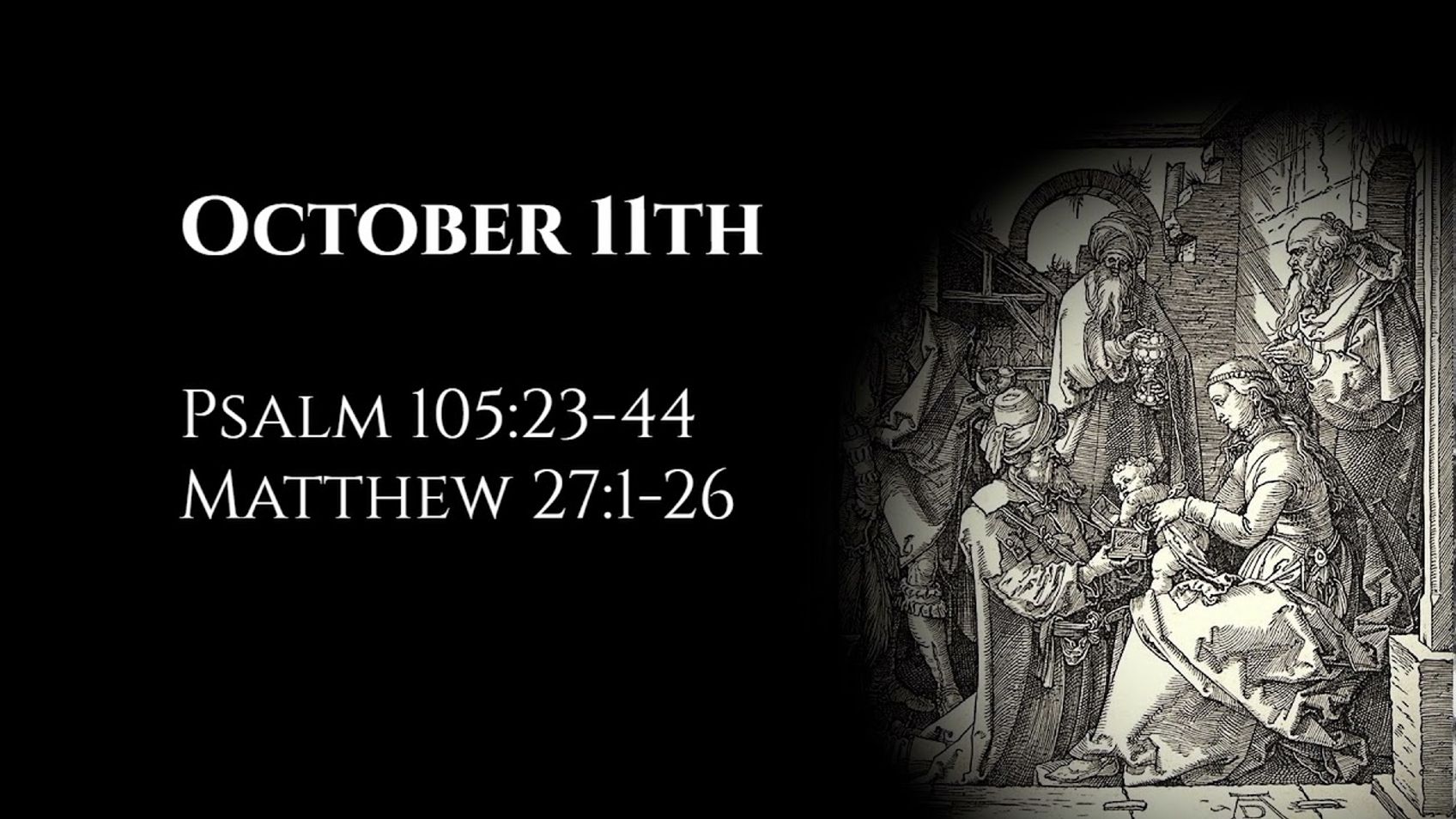October 11th: Psalm 105:23-45 & Matthew 27:1-26
October 10, 2021

Alastair Roberts
Psalm 105:23-44[45]. Jesus before Pilate.
My reflections are searchable by Bible chapter here: https://audio.alastairadversaria.com/explore/.
If you are interested in supporting this project, please consider supporting my work on Patreon (https://www.patreon.com/zugzwanged), using my PayPal account (https://bit.ly/2RLaUcB), or buying books for my research on Amazon (https://www.amazon.co.uk/hz/wishlist/ls/36WVSWCK4X33O?ref_=wl_share).
You can also listen to the audio of these episodes on iTunes: https://itunes.apple.com/gb/podcast/alastairs-adversaria/id1416351035?mt=2.
More From Alastair Roberts
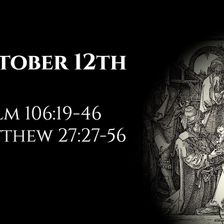
October 12th: Psalm 106:19-48 & Matthew 27:27-56
Alastair Roberts
October 11, 2021
Psalm 106:19-46[48]. The crucifixion.
My reflections are searchable by Bible chapter here: https://audio.alastairadversaria.com/explore/.
If you are
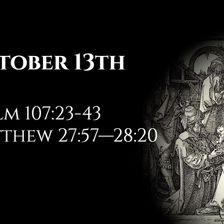
October 13th: Psalm 107:23-43 & Matthew 27:57—28:20
Alastair Roberts
October 12, 2021
Psalm 107:23-43. The resurrection.
My reflections are searchable by Bible chapter here: https://audio.alastairadversaria.com/explore/.
If you are in
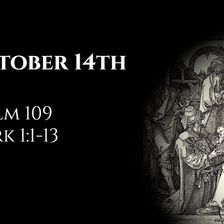
October 14th: Psalm 109 & Mark 1:1-13
Alastair Roberts
October 13, 2021
Psalm 109. John the Baptist preparing the way.
My reflections are searchable by Bible chapter here: https://audio.alastairadversaria.com/explore/.
I
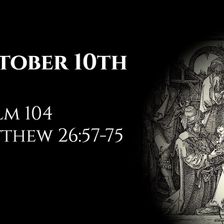
October 10th: Psalm 104 & Matthew 26:57-75
Alastair Roberts
October 9, 2021
Psalm 104. Jesus before the Sanhedrin and Peter's denial.
My reflections are searchable by Bible chapter here: https://audio.alastairadversaria.com/e

October 9th: Psalm 102 & Matthew 26:31-56
Alastair Roberts
October 8, 2021
Psalm 102. Jesus in Gethsemane.
My reflections are searchable by Bible chapter here: https://audio.alastairadversaria.com/explore/.
If you are inter

October 8th: Malachi 4 & Matthew 26:1-30
Alastair Roberts
October 7, 2021
Elijah coming before the Day of the Lord. The Last Supper.
My reflections are searchable by Bible chapter here: https://audio.alastairadversaria.com/
More on OpenTheo

Shouldn’t I Be Praying for My Soul Rather Than for Material Things?
#STRask
February 2, 2026
Questions about whether we should be praying for our souls rather than for material things, why we need to pray about decisions, whether the devil can

Protestants and Catholics: What’s the Difference? With Chad Van Dixhoorn, Blair Smith, and Mark McDowell
Life and Books and Everything
November 26, 2025
How should Protestants think about the Catholic Mass? About the Eucharist? About the history and development of the papacy? In this panel discussion,

How Should I Respond to an LGBTQ Person Who Says He Feels Good About Who He Is?
#STRask
March 2, 2026
Questions about responding to an LGBTQ person who says he feels good about who he is, and whether—since we all have sin in our life we don’t consider

An Invitation to the 2026 Coram Deo Pastors Conference
Life and Books and Everything
February 18, 2026
"I love being a pastor, and I love pastors, which is why I hope you will consider joining us at the Coram Deo Pastors Conference in 2026." —Kevin DeYo

Is Greg Placing His Faith in the Wrong Thing?
#STRask
February 12, 2026
Questions about Greg placing his faith in his personal assessment of which truth claims best match reality rather than in the revelation of God in Jes

Sense, Sensibility, and Adam Smith with Jan Van Vliet
Life and Books and Everything
February 16, 2026
This year is a special anniversary for the United States as Americans celebrate 250 years of independence. But 1776 was an important year in more ways

The Making of the American Mind with Matthew Spalding
Life and Books and Everything
February 2, 2026
The United States is unique in how much attention it pays to its founding, its founders, and its founding documents. Arguably, the most famous and mos

How Can I Explain Modesty to My Daughter?
#STRask
November 27, 2025
Questions about how to explain modesty to a nine-year-old in a way that won’t cause shame about her body, and when and how to tell a child about a pre

How Do We Advocate for Christian Policy Without Making the Government Interfere in Every Area of Life?
#STRask
November 20, 2025
Questions about how to advocate for Christian policy without making the government interfere in every area of life, and the differences between the mo

Is It Possible There’s a Being That’s Greater Than God?
#STRask
February 5, 2026
Questions about whether it’s possible there’s a being that’s greater than God and that’s outside of God’s comprehension and omniscience, and how to ex

How Would You Convince Someone That Evil Exists?
#STRask
November 17, 2025
Questions about how to convince someone that evil exists, whether Charlie Kirk’s murder was part of God’s plan, whether that would mean the murderer d

What About Those Who Never Heard the Name of Jesus?
#STRask
December 22, 2025
Questions about what will happen to those who never heard of Jesus or were brought up in a different faith, whether there’s biblical warrant to think

Does Open-Mindedness Require Studying Other Religions Before Becoming a Christian?
#STRask
February 9, 2026
Questions about the claim that if Christians really want to be open-minded, they need to read and study other religions before committing to Christian

Does God Really Need a “Pound of Flesh” to Forgive Sins?
#STRask
January 12, 2026
Questions about how to answer the challenge that God doesn’t need a “pound of flesh” to forgive sins but can simply forgive, and whether the claim in

Could the Writers of Scripture Have Been Influenced by Their Fallen Nature?
#STRask
October 23, 2025
Questions about whether or not it’s reasonable to worry that some of our current doctrines were influenced by the fallen nature of the apostles, and h
